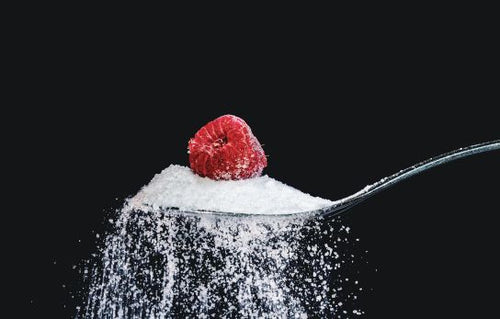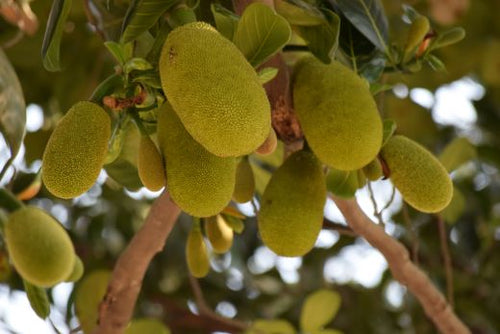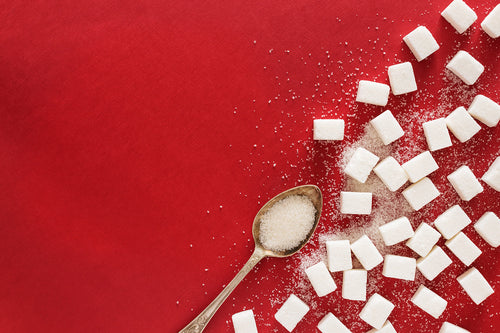Top Sources of Glucose You Probably Didn’t Know Existed
Glucose provides the body with the energy it needs to function. When blood glucose is low, we will typically experience dizziness, lethargy and in some cases we may even faint.
At these times it’s important to know which foods can help raise blood glucose levels quickly.
What is glucose?
Glucose is consumed as food or drink and absorbed into the blood via buccal absorption (directly through the gums, mouth and throat) or after carbohydrates have been broken down by intestinal enzymes. Once absorbed into the blood glucose is often referred to as ‘blood sugar’ or ‘blood glucose’.
Shortly after consumption, ‘blood glucose’ levels will rise , and often drop again within a few hours as the body's cells absorb glucose from the blood.
The liver releases glucose into the blood on-demand when the body needs energy, such as during physical activity or after a period of fasting.
Why is glucose important for the body?
Glucose is the most important source of energy for the human body. On average, an adult at rest needs around 200 g of glucose per day. The brain consumes the majority - around 75 percent.
The brain and red blood cells rely solely on glucose to meet their energy needs.
Maintaining healthy glucose levels
Keeping blood sugar levels steady is an important part of maintaining your body’s overall health effectiveness.
Individuals whose bodies are unable to produce healthy levels of insulin may require medication or insulin injections (typically if your insulin is low you may need medication. An insulin injection is required if levels are very low or your body stops producing insulin completely).
Ingesting too much glucose can be unhealthy – over-indulging in sugar can cause type 2 diabetes, a serious condition which effects several parts of the body.
Healthy habits such as not skipping meals and not overeating go a long way to keeping your glucose levels where they should be.
Having a balanced diet is key - eating regular meals will prevent the body from being starved of sugars staving off poor concentration and mood swings.
Limiting your snacking in between meals and being mindful of what you eat will prevent typical symptoms of sugar and carb overload such as fatigue and headaches.
What are some unexpectedly rich sources of glucose?
Now we’re clear on its function, let’s take a look at some food and drink you may not have expected to contain high levels of glucose.
Jackfruit
Glucose content: 11.7g/100g
Jackfruit has recently gained popularity as a vegan alternative to pulled pork. Traditionally grown in India and Malaysia, jackfruit is naturally sweet with a flavour which can be described as a cross between banana and pineapple. Having a relatively subtle flavour, it is used in both sweet and savoury dishes.
Polish Sausage
Glucose content: 8.9g/100g
Also known as ‘Kielbasa’, these tasty smoked pork sausages contain a surprisingly high level of glucose thanks to the inclusion of dextrose during the curing process. Corn sugar is added to the starter culture in order to feed wanted bacteria, and to lower the pH of the sausage to discourage bad bacteria from growing within the meat.
Tomato Puree
Glucose content: 4.7g/100g
Many a great sauce and curry has a base of tomato puree – did you know that it also has a high sugar content? Tomatoes are made up of around 95% water and 5% carbs and fibre – almost 70% of the carb content is simple sugars (glucose and fructose).
When the tomatoes are pureed, however, they lose much of their water content whilst concentrating more carbohydrate per gram.
Tomatoes are also packed with other vitamins and minerals such as vitamins C, K1 and B9 which could help to protect against heart disease and promote healthy skin.
Summing up
Glucose can be found in many of the foods that we eat, although some are much better as immediate sources than others.
Keeping a close eye on what we eat is critically important for maintaining healthy blood sugar levels. It directly affects our overall-health and mismanagement can lead to severe conditions such as diabetes or hypoglycaemia (low blood glucose).
In the case of low blood sugar, glucose is available in the form of a supplement which can be taken orally – it doesn’t need to be digested before entering the blood stream it will provide almost immediate relief.
Data sourced from: myfooddata.com


